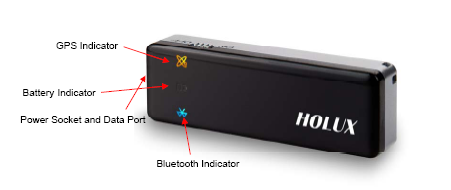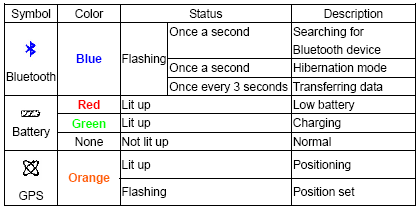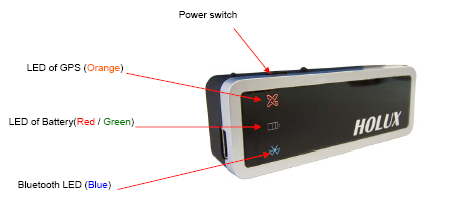GPS
As of today (March 2008) the two best GPS chipsets available are the SiRF Star III and MTK MT3318. They offer fast initial fix and can utilize weak GPS signals by massive parallel correlation computing power [1].
Holux GPSlim 240 GR-240
- Chipset: SiRF Star III - GSC (single chip)
This is a very small and light Bluetooth SPP (Serial Port Profile) compatible unit with USB support (USB-to-SERIAL cable). It features massive correlation computer power and excellent sensitivity.
The small size makes it idea for internal installation in the Eee PC.
Note: Initially I had problems getting it up and running from a cold start [2]. In HyperTerminal the COM-port was outputting unusable skewed data. After draining the battery (disconnecting the battery) it worked fine, instant lock.
Disable DGPS
To disable differential GPS correction, either use the SiRF Demo program [3] or these commands to disable WAAS/EGNOS/MTSAT [4]:
$PSRF100,0,38400,8,1,0*3C ; Switch to SiRF mode $PSRF151,00*0E ; WAAS/EGNOS/MTSAT Off $PSRF151,01*0F ; WAAS/EGNOS/MTSAT On
SiRF commands
Holux M-1200
- Chipset: MTK MT3318
The M-1200 looks and works much the same as the GPSlim 240. It's based on the latest MT3318 chipset and features 32 channel pipeline/queue, 5 Hz update frequency, and lower power usage.
Enable 5 Hz
The default update frequency is 1 Hz, or once per second, the MTK chipsets support 5 Hz.
$PMTK300,200,0,0,0,0*2F ; Set 200 millisecond update frequency $PMTK251,115200*1F ; Baud rate 115200 $PMTK300,200,0,0,0,0*2F ; ; Again set update frequency
Hacks
MTK commands
Other chipset brands
- SkyTraq
- Nemerix
- uBlox
- uNav
- Sony
- Fujitsu
Tools
Navigation Software
- iNav iGuidance - Windows - American only
- Microsoft Streets & Trips (America) AutoRoute (Europe) - Windows - Recommended
- Microsoft Mappoint - Windows
- DeLORME Street Atlas - Windows - USA only
- Garmin nRoute (GPSGate for NMEA-to-Garmin) - Windows - Garmin maps only
- Roadnav - Linux, Windows, Mac OS X - USA only
- GPSDrive - Linux - Recommended
- Navit - Linux
- QLandkarte - Garmin Linux


